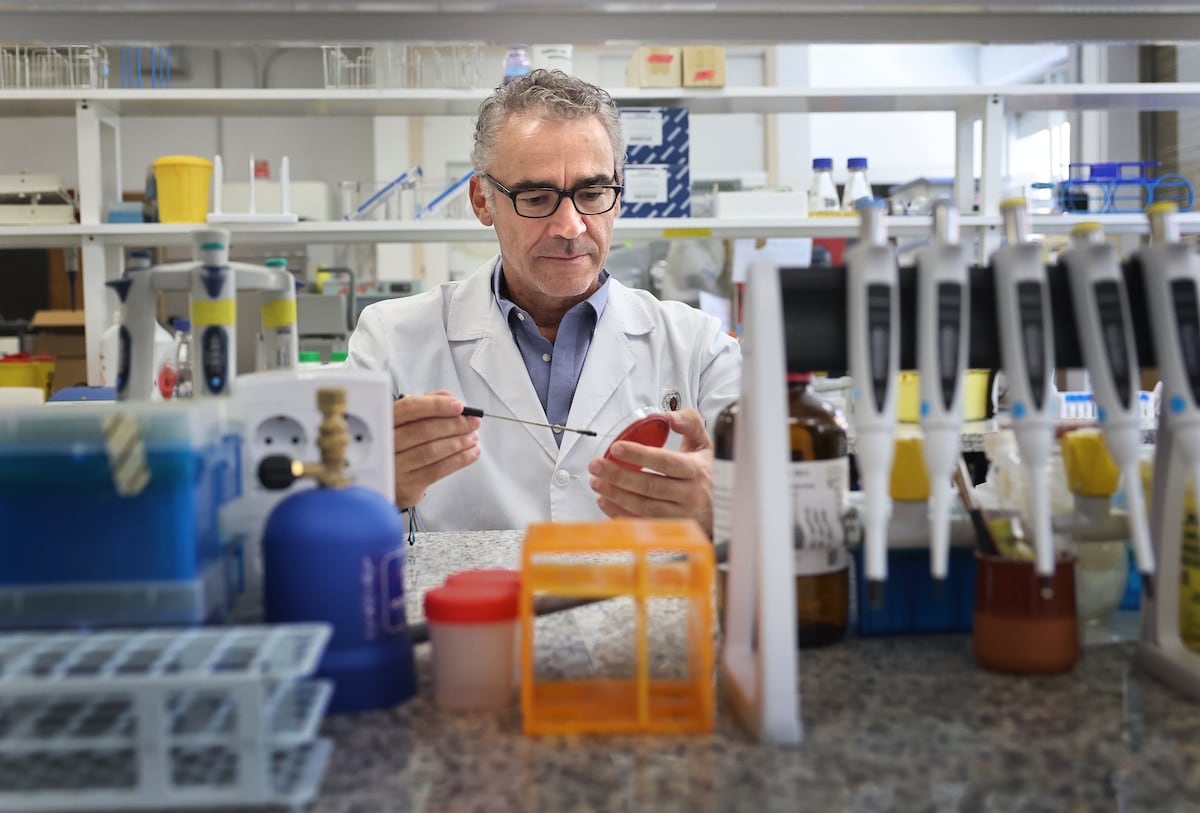In 2003, a team of scientists made an alarming discovery in the urine of a patient at a hospital in Japan: a strain of Escherichia coli bacteria carrying a previously unknown gene that made the microbe resistant to an entire group of antibiotics. The Japanese researchers named this troubling piece of genetic material npmA, a gene that turned the microorganism into a superbug immune to aminoglycosides, a family of drugs that includes well-known antibiotics like streptomycin and gentamicin.
Microbiologist Bruno González Zorn explains that, since then, npmA has become “a ghost” spreading silently. His team has analyzed two million bacterial genomes and detected that a variant of the gene, npmA2, has spread through hospitals and farms and reached at least six countries. This bacterial adaptation, combined with others, could render some infections “virtually incurable,” warns González Zorn.
The emergence of microbes resistant to all drugs is “one of the most urgent global health threats” facing humanity, according to heads of state and government who met at the United Nations headquarters in New York on September 9, 2024. Just over five years ago, the World Health Organization (WHO) documented 1.3 million deaths directly attributable to drug-resistant bacteria. One in five of those who died were children under the age of five. The npmA2 gene is a new weapon capable of jumping from one microbe to another.
“We have detected the beginning of its global spread,” explains González Zorn, professor at the Faculty of Veterinary Medicine at the Complutense University of Madrid. His team has identified the gene in the United Kingdom, Germany, the United States, Australia, China, and France, primarily in the bacterium Clostridioides difficile, which causes diarrhea that can be fatal in vulnerable patients. “Normally, resistance mechanisms do not confer resistance to an entire family of antibiotics. There is no single resistance mechanism to all penicillins or all tetracyclines, but this mechanism does confer resistance to the entire family of aminoglycosides,” explains González Zorn, who is also an advisor to the World Health Organization.
His study analyzed genomes from the international AllTheBacteria database. The results show that the presence of the gene is still “uncommon,” with around one hundred detections in Clostridioides difficile — just 0.34% of those examined. The gene was also found in a Dutch hospital during an outbreak of Enterococcus faecium, a microbe that can cause deadly infections in hospitalized patients. The research, published Thursday in the journal Nature Communications, involved scientists from seven institutions, including France’s Pasteur Institute and the U.K.’s University of Cambridge
“We need to act now to detect the gene early,” says González Zorn. “We often detect new genes after they’ve already appeared in many intensive care units across many countries, and it’s already too late. However, this time we’ve seen that it’s spreading silently and isn’t present in Spain. It’s a very good time to develop tools to detect it and prevent it from spreading. Or at least to be able to catch it early enough to isolate patients and know what we’re fighting against,” the microbiologist adds. “If we had detected it in 20 or 30 Spanish ICUs, it would have been a disaster; it would have been too late. The good thing is that we still have time to fight it, but we need to act now.”
Rafael Cantón, head of Microbiology at Madrid’s Ramón y Cajal Hospital, knows the danger of superbugs all too well. He began working in 1988, when lab tests showed that microbes were still susceptible to a wide range of antibiotics. Since then, the overuse of antibiotics has contributed to the emergence of strains resistant even to all available treatments.
“Aminoglycosides are antibiotics that are widely used in combination with others, such as in the treatment of tuberculosis or for bacteria that cause ventilator-associated pneumonia in hospitals,” explains Cantón. “I’m concerned [about the global spread of the npmA2 gene] because we continue to lose groups of antibiotic families.”
Sign up for our weekly newsletter to get more English-language news coverage from EL PAÍS USA Edition
